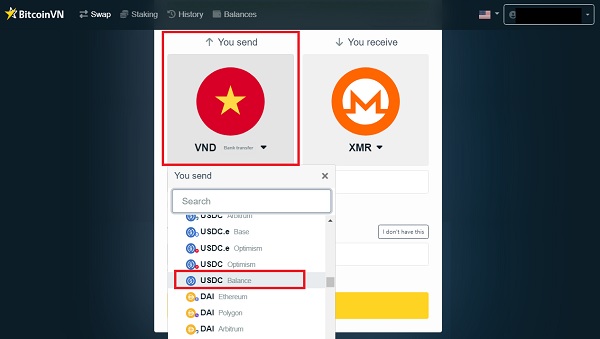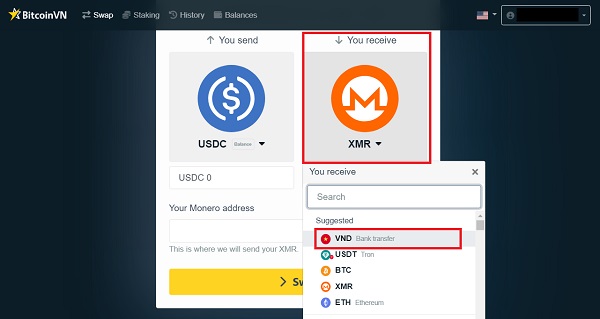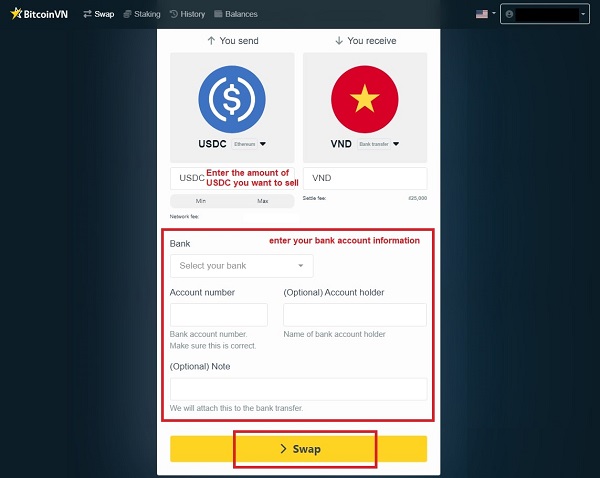Are you looking to sell USDC and convert it to fiat currency or other assets in Vietnam? In this article, we will guide you through the necessary steps to sell USDC easily and efficiently.
How to sell USDC in Vietnam?
To sell USDC and receive VND directly to your bank account, please follow these steps:
- Step 1: Access BitcoinVN exchange and log in to your account.
- Step 2: Under “You send”, select USDC (Balance).

- Step 3: Under “You receive”, select VND (bank transfer).

- Step 4: Enter the amount of USDC you want to sell, the corresponding amount will be displayed in the opposite column. Next, enter your bank account information for us to transfer the money to you. Finally, select “swap” to sell USDC.

“Swap” to proceed the transactionThat’s it! With these four straightforward steps, you have successfully completed the sale of your USDC. If you have any questions or encounter any issues during the transaction, feel free to contact us via email at support@bitcoinvn.io!
Have a large amount of USDC that you can’t sell all at once on the exchange? Contact our OTC trading desk now!
Why should you sell cryptocurrency on BitcoinVN?
BitcoinVN is a long-standing cryptocurrency exchange in Vietnam, renowned for its security, speed, and transparency. Selling crypto on BitcoinVN allows you to receive fast VND payments with competitive transaction fees starting from just 0.2%, and enjoy dedicated customer support. The platform is also compliant with local regulations, ensuring your transactions are always legal and secure.

How to Safely Store Cryptocurrency?
Hardware wallets and software wallets are the two main options for storing cryptocurrency, each with its own advantages and disadvantages.
- Hardware Wallets: Hardware wallets are physical devices like Ledger or Trezor that store your private keys completely offline, reducing the risk of hacking or online attacks. Since they are not connected to the internet, hardware wallets protect your assets from online threats such as phishing or malware. However, using a hardware wallet requires careful handling, as losing the device makes it very difficult to recover your cryptocurrency without a proper backup.
- Software Wallets: Software wallets operate as applications on mobile devices or computers (like Exodus, Trust Wallet, MetaMask), or even as web-based wallets on browsers. They are convenient for frequent cryptocurrency transactions, providing easy access to manage your assets anytime, anywhere. However, since software wallets are often connected to the internet (hot wallets), they are more vulnerable to online attacks than hardware wallets, although they still employ security measures like encryption and two-factor authentication (2FA).
In summary, hardware wallets are better suited for long-term storage due to their high level of security, while software wallets are more convenient for everyday transactions but require caution regarding online security risks.



